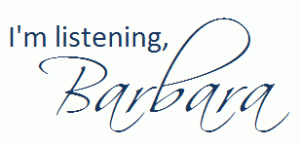
Originally published on 9 December 2009 & featured in Ragan’s PR Daily. Updated on 20 May 2010. Updates are in italics.
Over the past few semesters, I had nearly 450 of my students blogging as part of their grades in public relations courses. And this semester, I have more than 75 more. Based on their experiences and mine, here are some tips for maintaining your blog (especially when it’s graded as an assignment):
- Your professor may require a certain amount of posts on specific topics and perhaps even a specific length. Follow these guidelines to a T. Refer to the assignment sheet/post often to be sure you’re doing what’s needed.
- There may be interim deadlines for your blog posts. Keep up. Even if there aren’t interim deadlines, blog throughout the semester. If you do all your posts toward the end (or even the day they’re due), it’s not to your advantage. It will appear as though you procrastinated. Your readers will likely not read more than a post or so a day, so piling a bunch into one day actually hurts your readership.
- Make an editorial calendar for yourself based on the blog requirements. Consider using Google Calendar to keep track of posts you intend to write and when they should be written. (Google Calendar can even send you text message reminders.)
- Stuck for topics? Ask your readers at your blog what they’d like to see, or ask your followers on Twitter for help. Read Ragan’s PR Daily and listen to PR podcasts for additional ideas.
- Proofread. This should go without saying, but since I’m saying it, it apparently doesn’t. Misspelled words and poor grammar significantly detract from your credibility. If you know you’re not a great speller, then write your posts first in Word, where SOME misspelled words and grammar errors show up more easily. Partner with a friend and proof each others’ posts, too. (NOTE: If you write in Word first, be sure to use WordPress’ “Paste from Word” feature, or else you will end up with some really ugly formatting.)
- Write in short paragraphs. Long paragraphs are really grey and hard on the reader’s eyes.
- Use photos licensed by Creative Commons to add visual impact to your blog. I recommend Compfight for finding images.
- One of the best ways to become a better blogger is to read & comment on others’ blogs, too. It’s not all about you. Once you start commenting on others’ blogs, you may notice that your readership will increase (because of people clicking on your name in the comment and finding your blog.)
- Change the name of your blog from whatever WordPress “gave” you as the default (which may be something like Bnixon13’s Blog) to something more professional and interesting. Though you cannot change the URL for your blog, you can easily change the name. And definitely change or get rid of the default tagline “Just another WordPress weblog,” which screams N00b.
Yikes! I promised you 10 tips, and I only gave you 9! I need your help. What’s one more tip you’d provide to round out this top ten list?
.



Barb,
I just finished my PR Online Tactics course, where a significant portion of our grade was determined by our blogging efforts. This list will be very helpful to students taking these types of classes in the future; I wish I would of had this back in September!
As a 10th tip, I would advise students to keep current on news surrounding the PR industry. By subscribing to RSS feeds of the PR Daily News Feed and prominent PR bloggers, it makes it easy to keep up on what’s new in PR and will give students a wealth of topics. Following the general news is important, too, as it will often spur thoughts and motivate students to start communicating through their blog.
Being well-informed will also help students’ blogs receive more traffic, because people will want to read about relevant, current topics. And it will improve their credibility by showing they are keeping up with the times and knowledgable about the business.
I think one of the best blog tips is to be yourself! Don’t try to be “too” – too funny, too smart, too famous. Just be YOU!
These are great tips that I plan to incorporate into my own suggestions for students in their blogs for my pop culture and gender classes. I have found no. 9 to be really helpful in building community in the classroom. Another community-building tip that students have embraced (though slowly at first and not by all) is the use of Twitter. We had a Twitter project and individual blogs from WordPress in the pop culture class this semester. Many students ended up linking the two accounts, which led to instantaneous and multiple checking of–and commenting on–blogs by students. In short, most students installed Twitter Tools on their blogs, which then updated Twitter anytime new posts went live. What’s more is that most students were new to Twitter when the course began in August. The majority of them have decided to keep their Twitter accounts active now that the class is over!
Thanks, Barbara. I’d add that every blog should have at least one hypertext link and at least three tags/keywords for SEO purpose. Students just wanted to post what they think or read but overlooked to include links to provide deeper information.
Over on Twitter, Barbara was looking for a 10th tip.
So I gave her this one:
Know what you’re going to write about before you start. (if you plan to post 10 things be sure you HAVE 10 things)
I’ll add a few more:
If you want to post both about your PR work and about your life, use separate blogs. I’d even have them on completely different site URL’s rather than having buttons for personal vs. professional. You may also want to consider making your personal blog somewhat anonymous by blogging under an assumed name.
Make a decision early on about how controversial you will be. What you write hangs around forever, even after you change your mind and no longer believe in a particular cause or position. If you plan to be controversial realize that you have to be willing to have that hot-button post from years ago show up when people are deciding to hire or not hire you. If you decide not to be controversial, be consistent.
You can always delete a blog, but Internet Archive sites will still keep it around for those who wish to dig for it.
Nobody says that you can’t abandon a blog (though an announced shutdown is better) and start over if your focus changes.
It is permissible over the long-haul to take sabbaticals from blogging (again – announced is best), but realize that you will lose readers during your time off.
here’s one of my mottoes for blogging:
don’t be afraid. many times not knowing what to write is really just being uncertain. take a risk when you are unsure.
often not writing is because you are afraid it’s “not good enough” or “too personal.” the medium is a rather personal one. because it’s public there is a risk involved. all the best and most successful writers have taken huge risks with what they write, just like any other artist!
Drew — A good reminder. Writing is an art. Thanks!
Some cheats….
When inspiration strikes and you have two or three good posts screaming to be written, write them all. Then save two as drafts for those slow days.
A photograph is a perfectly fine blog post. The title is important.
If you’re stuck for an idea, call your parents. They’re sure to have something funny to say. They may not think it’s funny, but your readers will.
A video is a perfectly fine blog post. Not one you found on Youtube. One you made yourself.
A picture of your cat is not a good blog post. It wasn’t in 1998. It isn’t now. Unless you’re being ironic. Be careful if you go there. It’s a career-ender for some.
If you’re really hard up for a post, attend a local government committee meeting. It probably won’t make a good post, but you’ll see what hell awaits you if you drop out of public relations and become a journalist.
Thanks for the great tips, Chuck. I especially liked the one of posting a photo.